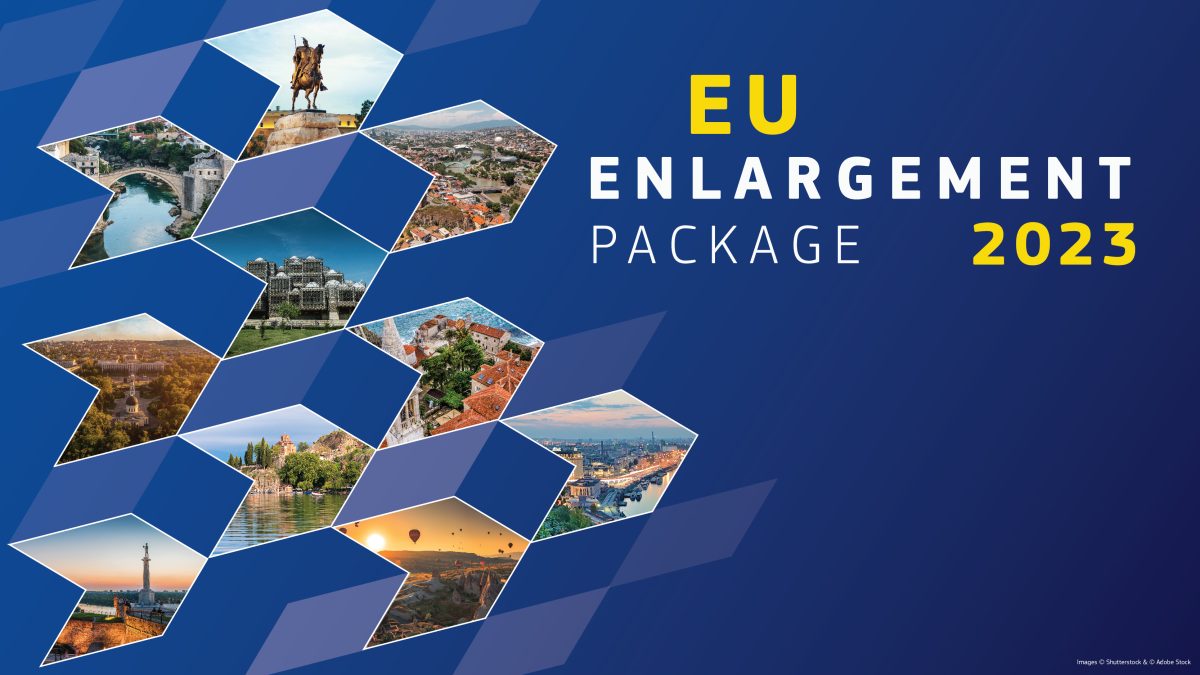What next after the enlargement package?

With the European Commission’s enlargement report out, the ball is now in the court of EU leaders to decide how to proceed with the accession process – and their own reform homework.
In a historic step, the European Commission recommended on Wednesday the opening of accession talks with Ukraine – notwithstanding Russia’s ongoing war on the country – as well as with Moldova.
The Western Balkans got the EU’s Growth Plan for the region, while Bosnia got a carrot dangled in front of them in the form of a muddled phrase about a potential future distant chance for opening accession talks.
In total, despite all the shortcomings still listed for the now 10 EU hopefuls, it might have been the most positive package in a long while.
The next step will be for EU leaders to mull over and (very likely) back the Commission’s recommendation on Ukraine, Moldova and Georgia when they meet for their end-of-year summit on 14-15 December.
It will be a rough summit by all means, EU officials and diplomats agree.
The key issue will be the accession talk decisions, but the limelight will almost certainly be hijacked by the tough battle over a proposed EU budget revision, which includes the €50 billion in new aid for Kyiv.
The threat of Hungary and Slovakia potentially teaming up to push their own priorities promises lengthy discussions that could spill over between the two topics, likely with attempts by Budapest and Bratislava to force a ‘package deal’ of sorts.
Seasoned EU summit watchers even suggest there might be a decision to stretch talks into the weekend to broker agreements on the flurry of topics on the agenda.
On enlargement, Euractiv understands that if there is a political agreement and green light in December, the technical preparatory work on a negotiating framework could start immediately and the Commission will send its negotiating teams to Kyiv and Chișinău right away.
Implementation progress on the outstanding recommendations for both Ukraine and Moldova will then be communicated to EU leaders in March 2024, EU officials confirmed this week.
The EU’s screening process, meanwhile, will assess which laws need to be aligned with the bloc’s current legislation, the so-called acquis, a process that normally takes between one and two years. “But we want to go fast and think we can do this in six months,” an EU official told reporters.
According to some EU officials with knowledge of the matter, the first Intergovernmental Conference – at least for Ukraine – could even be held shortly after March 2024.
No doubt, the floated 2030 deadline by which the EU might see new members join the bloc largely remains a pipe dream as most of the countries face a long and arduous path ahead. But the signal is clear. Now it is for the EU to move.
Over the coming months, EU countries will need to get serious about their own reform debate and according to many of the bloc’s capitals, this needs to happen in parallel to keep the enlargement momentum alive.
Work on this is expected to gain traction in the next week, when European Council President Charles Michel will host a series of dinners with EU leaders, in different national compositions, to follow up on the informal talks at the Granada summit earlier in October to discuss the strategic agenda for the next institutional cycle.
Many EU diplomats, however, expect that a serious conversation about the bloc’s own reforms will only happen after the December summit establishes a clear status for the EU hopefuls.
And then again, much will depend on the yet uncertain composition of the next institutional set-up following next June’s elections.
One thing, however, is indisputable: In any case, a geopolitical disaster looms for the Kremlin.
The accession of Ukraine and Moldova to the EU would be a loss for Vladimir Putin, just like the potentially slow but steady loss of Russia’s grip on some countries in the Western Balkans.
The invasion of Ukraine – a war meant to prevent any future EU (and NATO) enlargement – brought it back to life.